On this very Halloween, Katone (full name Jimmy Katone) celebrates the world premiere of his brand-new video Eternal on NRT-Records— a haunting and cinematic continuation of the darkly emotional journey he began with his acclaimed EP Flesh and Fire. Signed to the highly motivated independent label NRT-Records, Katone stands as one of modern rock’s most intriguing creative forces. With his trademark mix of gothic atmosphere, industrial edge, and emotional depth, he blurs the line between love, desire, and the supernatural. In this exclusive interview, Jimmy Katone opens up about the making of Eternal, his collaboration with NRT-Records, and the evolution of a career spanning more than four decades.
The New Era – Flesh and Fire & Eternal
Hello Jimmy, thank you for your time. Your latest release, “Flesh and Fire,” marks a bold and passionate new era for you. It combines gothic atmosphere with dark rock and classic hard rock energy. What inspired you to explore this emotional territory — the thin line between love and destruction?
Jimmy: When I began producing my solo albums I was very influenced by artists like Trent Reznor and Brian Warner. I’m from that period. Even though I’m thought of as an 80’s pop rock artist, I was reborn into the 90’s Industrial era. I identified with it. It was powerful and dangerous. I could be myself in it. All my albums are concept albums except my Kat O’ Nine Tales album. When it was time to do my first release under NRT-Records I wanted to still be the KATONE of the past two and a half decades but I knew I had to take this to a new level. I knew I had to put it all across so that maybe people could understand me better and relate to me a bit more. Bringing in a pair of great guitarists to help out allowed me to focus on better productions. I’ve always written along similar themes as Flesh and Fire. My goal really was to take what I had always done well and put it on steroids.
The three tracks — Flesh and Fire, Bound by Chains, and Pull Me Under — all deal with passion, temptation, and the darker side of desire. Do these songs come from personal experience, or do you approach them more from a storyteller’s point of view?
Jimmy: Yes, the themes for the Flesh and Fire EP are all deeply personal to me but also entwining other ideas and short themes to make them a bit more relatable. I’ve always taken on the storyteller approach in my songs. Putting a song across as a tale gets your audience more involved. They pay attention more when they hear themselves within the lyrics.
You perform almost every instrument yourself on this EP: vocals, drums, bass, rhythm guitar, and keyboards. How do you manage to balance all these roles and still keep the raw, emotional power of the music alive?
Jimmy: I think it comes down to just focusing on the song. What I’ve learned about this over the years is that there are two killers to rawness and emotional power in a song. 1) Never wait too long to record a song you feel strongly about – this includes waiting on people to send you tracks. 2) Never do a demo. I don’t use them. The process of recording demos kills all the feeling of a song, in my opinion. All of the raw emotion is in that first “demo” that was created. Now to abandon that recording and recut the song from scratch and try to cop that initial feel… you’ve just murdered the song. I live by that.
The production and visuals of Flesh and Fire feel cinematic — each song comes with its own music video. How important is the visual presentation for you when it comes to telling your musical stories?
Jimmy: Videos are extremely important in my opinion. They bring the song to life. They take the song and put it in 3D. People have become very visual creatures these days. If you want a song to do well and potentially go to the next level, I do believe a music video is paramount.
Partnership with NRT-Records
Early This Year you signed with NRT-Records, the German independent label that also represents Ritchie Newton and Reaper’s Revenge. How did this partnership come about, and what made you feel that NRT was the right home for your music?
Jimmy: I first became acquainted with NRT-Records while working with Ritchie Newton during the Higher Powersessions. I worked closely with the label on promos and production ideas for the album. I met Philipp Gottfried during these sessions. My first impression was that they are a very “hands on” label and very into high quality productions. Unlike some of the smaller labels I’ve worked with, they take a huge interest in every aspect of an album, from the songs to the videos to the artwork. They get ingrained into the project without stepping on the artist’s toes. I was impressed with NRT-Records immediately and was thrilled when they eventually reached out to me about a potential deal for KATONE.
Independent labels often give artists a lot more freedom. How did working with NRT-Records influence the creative direction of Flesh and Fire and now your upcoming EP Eternal?
Jimmy: Working along with NRT-Records on my Flesh and Fire EP was interesting because now I am working with them as a signed artist and not just as a drummer on someone else’s album. This was my debut under them and it was a getting acquainted period. It was taking what KATONE was doing for decades and adapting it a bit to label ideals. It was looking deeply at my career and image and deciding what aspects are going to be enhanced and what aspects are going to be moved on from. I think we got it right. I do value my creative freedom as much as I ever have but I also welcomed the creative suggestions from the label. Now we are onto the next release Eternal, and having a release like Flesh and Fire under our belts allowed us to pick up where we left off instead of starting from scratch.
Collaborations and Creative Bonds
You played drums on Ritchie Newton’s Higher Power and Crying in the Summer Rain and appeared in both videos. What was that experience like for you, both musically and personally?
Jimmy: I absolutely loved working with Ritchie Newton on the Higher Power album. It was a great experience and Ritchie and I became great friends in the process. I have a lot of respect for him as a vocalist and producer. He’s quite an artist and you can’t help but to learn from him. Also, working with Armin Sabol and Marco Mendoza was amazing. I also got to work again with my friend Markus Pfeffer who I also have worked along with on the Mason albums.
Let’s talk about your reinterpretation of Alice Cooper’s “Poison,” which you created with the german Heavy Metal Band Reaper’s Revenge. The video gained over 30,000 views in just two weeks — an incredible response! What made you decide to cover such a legendary track, and how did you approach giving it your own dark twist?
Jimmy: After the Flesh and Fire EP Philipp Gottfried (CEO of NRT-Records) and I briefly discussed ideas for a next release down the road. He mentioned the idea of perhaps covering the Alice Cooper song Poison. He felt my style was a match and could really work. While I loved the idea because I’m a huge Alice Cooper fan, I kind of took it with a grain of salt then because we just released Flesh and Fire and I knew I was months away from beginning my next album. When we picked up discussions months later Philipp once again opened with the idea of me covering Poison and I then knew we were really serious about it. We were both very interested in a collaboration with Reaper’s Revenge because we felt it was an obvious match. They did an incredible job on the music, staying close enough to the original but injecting it with Reaper’s Revenge’s signature sound. They were masterful.
The original Poison is all about the intoxicating danger of love — attraction that’s as thrilling as it is destructive. That theme perfectly mirrors Flesh and Fire. Was that connection intentional, or something that developed naturally during the process?
Jimmy: I do believe this was why Philipp chose this song for KATONE. It wasn’t intentional but I do believe me being inspired by Alice Cooper for all of my creative life made this parallel in themes decades later. I do proudly wear my influences on my sleeve.
Eternal – Passion and the Supernatural
Your next release, the EP “Eternal,” premiered with the title track on Halloween — a very symbolic date. Why did you choose Halloween for this premiere? Was it connected to the atmosphere and themes of the song?
Jimmy: When we were discussing the next release date Halloween came up right away. Eternal does have a paranormal element to it; however, it’s not your prototypical ghost and goblins campy Halloween theme but rather a divine intention. It’s about an imprint that two people have on one another that they are born into and have with them eternally.
The track Eternal feels like a fusion of passion and the supernatural — dark, seductive, and haunting. What was the inspiration behind this song, and what story or emotion are you channeling through it?
Jimmy: My song Eternal is a story of two people who become involved with one another and ultimately begin feeling an attachment and hunger for one another. It changes them forever and causes them to rethink and relearn everything they’ve ever known about a relationship. They eventually realize that they were born into an imprinted divine betrothal to one another — connected through eternity before this life and into the next. This song was written during the Flesh and Fire sessions but was not completed on time for the release. It leads the initial Flesh and Fire theme into the next chapter.
Crimson Shadows paints a vivid, cinematic soundscape — it feels like walking through a neon-lit city at night. What creative ideas or emotions led to that song’s atmosphere?
Jimmy: This is a song about being detached from a powerful connection for the first time. Trying to figure out how to feel normal after being torn away. The relationship has just ended abruptly and now all that is left are shadows. Only the outlines exist and everything inside is too painful to think about because it is over. The video was shot in several countries (Budapest, Prague, Austria) as this person desperately searches for peace but the shadows continue to haunt them wherever they are.
The acoustic track Love Like a Diamond closes Eternal on a very emotional note. What does this song represent for you — is it about love, loss, or something more symbolic?
Jimmy: This song closes Eternal on a more bluesy note. I wanted something really powerful to close this chapter. The diamond is a metaphor for this cherished connection. A diamond they say is forever — it gleams and glows but also can cut like nothing else. I wanted to portray the passion and emotion of the many sides and interesting cuts of a connection, revisiting a more bluesy sound that was present throughout the Flesh and Fire EP.
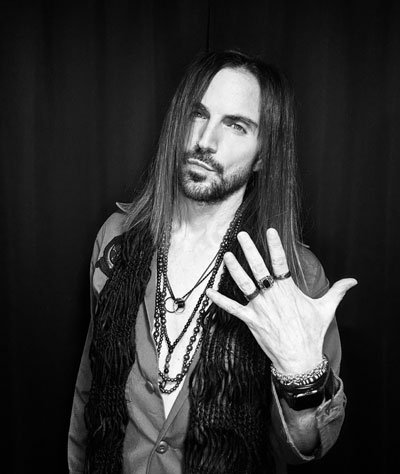
Legacy, Sound & Evolution
You’ve worked again with your long-time friends Igor Mueller and Al Augunas, both from Hit The Ground Runnin’. What’s special about your creative chemistry after so many years of making music together?
Jimmy: Al Augunas and I have been recording together on and off for about 40 years and we’re great friends. We went through a lot together in Hit The Ground Runnin’. He knows my style well and he’s one of my favorite guitarists. Igor and I became friends during the MySpace era and have always wanted to work together. He is the prototypical studio rat and his guitar tone is godly. I’m so fortunate to have both of these incredible guitarists in my corner.
You’re also endorsed by Trinity Cymbals — congratulations! What makes Trinity special to you as a drummer, and how do their cymbals shape your sound?
Jimmy: As a drummer, I’m always searching for the best products. A couple of years ago I came across Trinity Cymbals through a drummer friend and was so impressed that I reached out to the company immediately. I became a Trinity Endorsed Artist last year and have not looked back. Their brilliance and cut have become a staple to my drum sound on Flesh and Fire and Eternal. I also endorse JJrums Custom Drums and Los Cabos Drumsticks.
From Drummer to Frontman
Having been active for more than four decades — from the golden age of rock to the modern digital era — what do you think has changed the most about being a rock artist today?
Jimmy: The industry has changed immensely since I signed my first record deal in 1988. At that time a lot of my hometown friends were getting label deals. I was born and raised in Philadelphia and got to watch The Hooters, Cinderella and Britny Fox get their big moments, then along came Pretty Poison, Bricklin and Tangier getting their deals and making their marks. Those were incredible days in the industry but they just don’t exist anymore. There are a lot of pros and cons to the way things went over the past 30 years. Back then if you were lucky enough to get a label deal you got rushed into a large high-end recording studio and issued a top producer. A lot of things got paid for up front and your life changed immediately. People equated it to hitting the lottery although there are a lot of covered-up details to that.
Today you do have more artistic control and some of the best new albums over the past decade have been recorded in home studios. Those big brassy studios of the past have largely become obsolete. These days the more you do for yourself the better off you are. Back then you performed on stage and on your albums and lots of things were taken care of for you (to be paid by you later). Artists are way more hands-on with their careers these days. I have gotten so used to managing myself that it’s hard to imagine it any other way at this point. I prefer this because I never felt back in the day that my best interest was ever truly taken into account. It’s a more DIY artist situation these days and I love it. Having control over my own creative art was something I never had back in the day. It’s worlds better to have that. You just need to embrace the fact that the old way is over and long gone.
Your lyrics often reflect duality — light and darkness, pleasure and pain, passion and danger. Would you say that this mirrors your own life experiences?
Jimmy: I’ve always taken my lyric writing seriously. People who have loved my music over the years always come back to my lyrics. I do believe my lyrics have been my constant. Life is a big mirror reflection. There are two sides to everything. We all know how beautiful sunny days can be but we also know that at some point it has to rain. You can’t just write about the sunny days — it’s one dimensional and can get very boring.
I was at breakfast the other morning and I noticed a man and his wife sitting across from me. The wife appeared to be having strong words with the man but the man wasn’t saying anything… he had this droned but intense stare as if he was exploding internally. I want to write about what was going on in that man’s head at the time. I love writing about the unsaid things — the things that literally burst our seams. Those are the gold for me. I would say about half of my songs are written about my own life experiences and the other half are subjects that I see others going through that I relate with.
After your time with Hit The Ground Runnin’, you launched your solo project Katone, which has since become your defining artistic persona. How did it feel to take that step into complete creative independence with your debut Committing Suicide back in 1999?
Jimmy: When I look back at that moment I felt ready for it. It happened very naturally. It wasn’t how I envisioned it but what I’m doing today started as a result of people simply not showing up. A guitarist calls and can’t make it over to lay a track down because he’s having an argument with his girlfriend or whatever… no worries, I’ll do the track myself. The keyboardist has to work late and can’t make it over. Ok, I’ll do it myself. At some point I just didn’t ask people anymore. I just simply did it myself. And I’m still doing that 27 years later.
In the 1980s you gained international recognition with Hit The Ground Runnin’. The band performed at major events such as the Monterey Pop (Protect Our Planet) Festival in 1989 and shared stages with artists like Sam Moore and Billy Preston. How do you look back on those early years?
Jimmy: The early Hit The Ground Runnin’ days were formative for me. I really learned how to be in a band then. We opened up for so many great artists. It was like a crash course. I have very fond memories of those days. Flying over to Monterey and playing on that stage was huge. Meeting and hanging out with Billy Preston and others that evening was surreal. Crafting the Sudden Impact album in my early twenties in a huge recording studio with real creative control lit the spark for me for everything that followed. I do believe at that point I became an artist. We all did. Each member of Hit The Ground Runnin’ could have written and produced a great album on their own. I’ve always believed that. Some of us have.
Over time, you didn’t just remain a drummer — you became a true multi-instrumentalist, a singer, and a songwriter. What drove you to take full creative control and build your own musical identity?
Jimmy: Playing instruments is a great form of artistic expression but I do believe when one begins singing something happens — at that point something different happens — you become a persona. You become the focal point in the band. I began singing when I was about 13. I was jamming with my school buds and we were beginning to put songs together and began getting pretty good, but no one wanted to sing. I kind of became that guy out of necessity I guess. I got a microphone and a boom stand and began singing while playing drums. I did this for years in several bands. I was the lead singer/drummer guy for a while and in some bands I just sang backups while playing. On a few occasions I went out front to sing some of the songs and it felt right. Getting out from behind the drum kit and fronting felt great. As much as I loved drumming I knew that if I wanted to fully express myself it had to be out front.
In 1991 I made the decision to embark on a solo career. Not giving up any instruments but playing everything and writing my own songs. Getting players to play on my stuff early on was tough. Honestly, I don’t think I was being taken very seriously because I was known as a drummer so getting people to play on my stuff initially was difficult. So I began laying tracks down myself — drums, bass, guitar, keys, vocals. My identity came through my writing. Because I could write and play as I wanted, I began crafting songs to fit who I really was, without having to worry about anyone else’s egos or personas intermingling with mine.
You grew up in Philadelphia and started playing drums at the age of nine. Do you remember the moment when you realized that music would become your life’s path?
Jimmy: I began listening to music at a very early age — I’m the youngest of four and all my siblings had amazing album collections — David Bowie, Alice Cooper, Deep Purple, Kiss, Edgar Winter, etc. I began listening to their albums repeatedly and of course looking at the album photos and inserts. I was fascinated and deeply enchanted with the sights and sounds of 70’s rock. I got my first guitar when I was 7 years old for my birthday and began taking lessons. I also began playing piano that same year. But my heart dropped when my older brother began playing drums. I watched him practice and play along with his albums daily. I was entranced and dropped everything to become a drummer. Shortly thereafter I heard a drum solo from Peter Criss on the Kiss Alive! album. That was the moment I really knew that music and drumming was going to be my path.
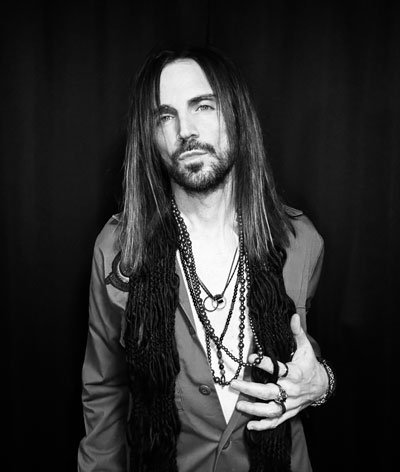
Looking Ahead
Finally, Jimmy — as Flesh and Fire continues to make waves and Eternal launches into the world, what’s next for Katone? Can fans expect more music, collaborations, or even a tour in the near future?
Jimmy: I would love next year to be a big step forward — a new release, another big collaboration, and hopefully shows. I get asked every single day about a tour. I do believe that will happen in the coming year. Each release is another rung on the ladder to taking KATONE on the road.
More About Katone on Web:
Jimmy Katone on Facebook:
https://www.facebook.com/triskatone
Jimmy Katone on Instagram:
https://www.instagram.com/katone__official/
Jimmy Katone on Download and Streaming Services:
https://fanlink.tv/katone
Photos copyright: Golden Shutter Photography

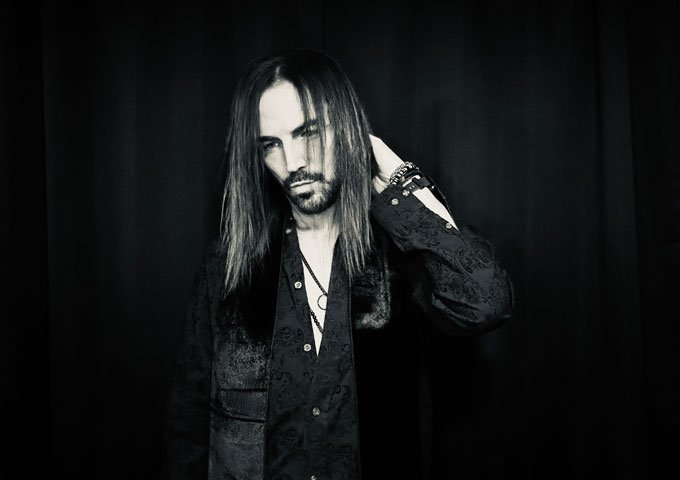
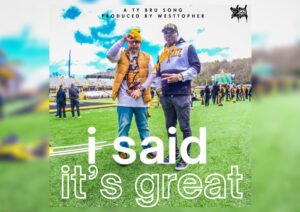
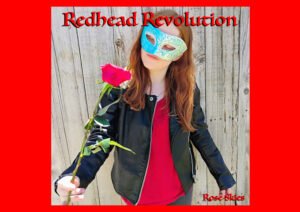
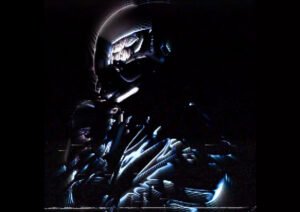
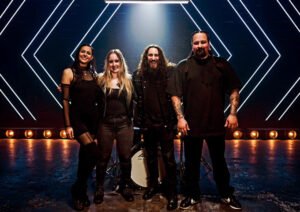
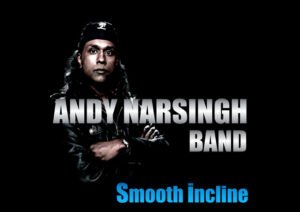
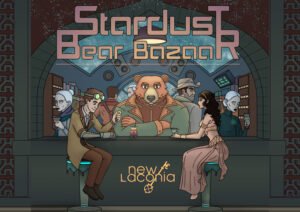
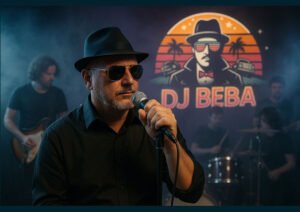
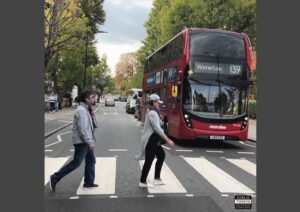
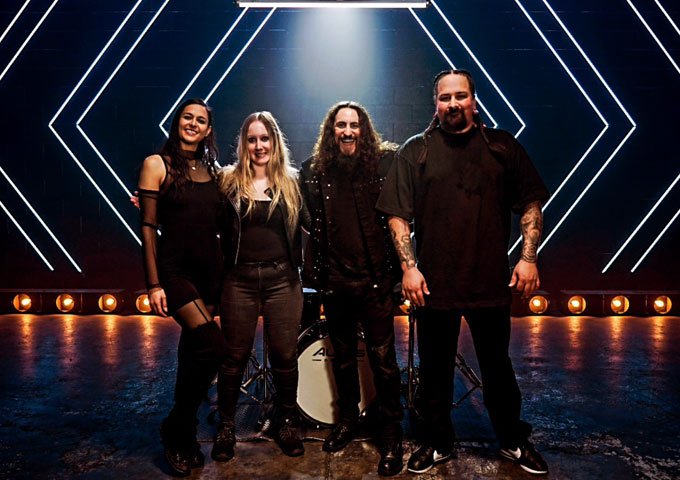
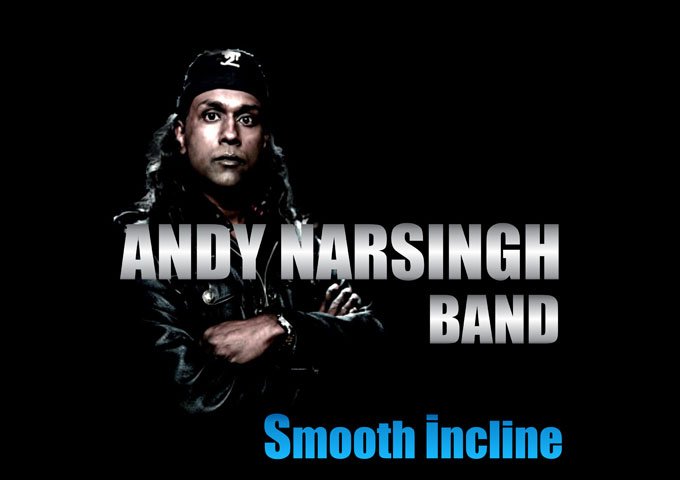
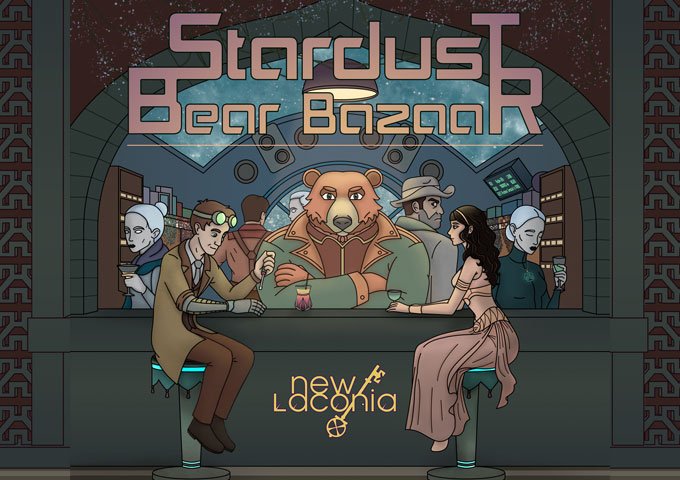
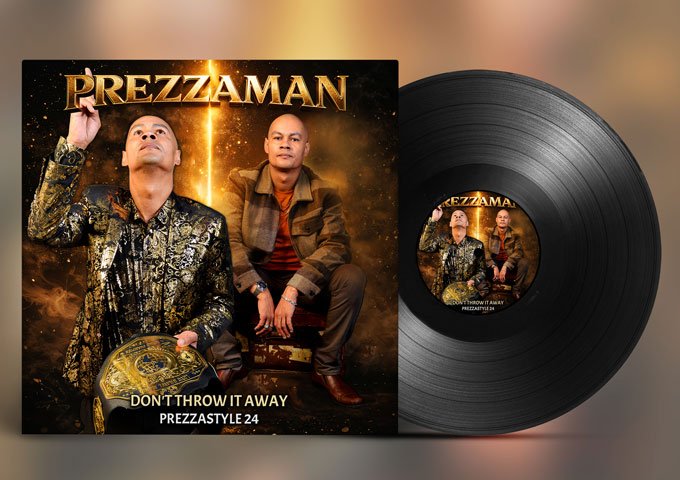
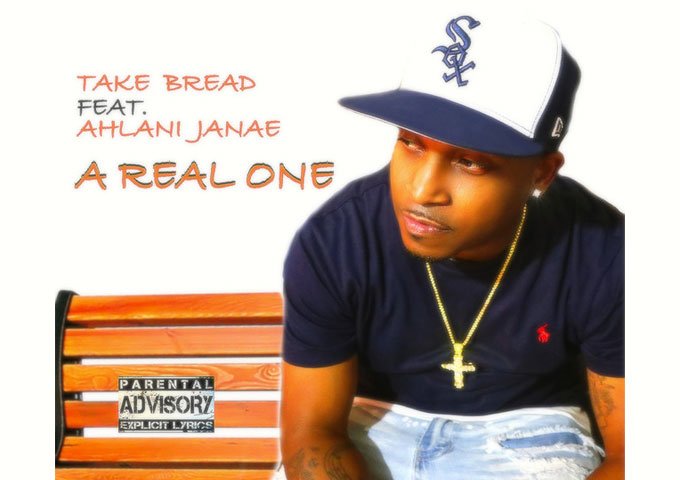
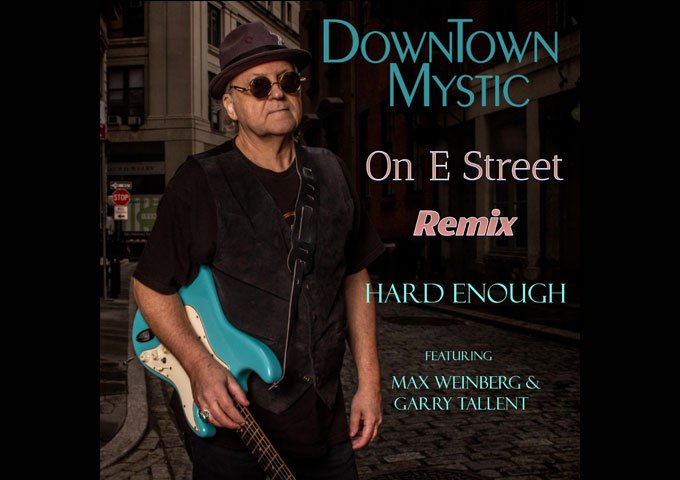
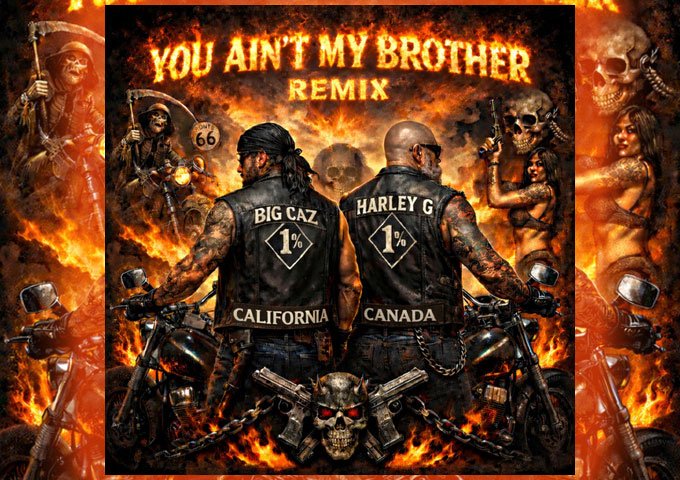

+ There are no comments
Add yours